From the Voices of Nurses
AN ORAL HISTORY OF NEWFOUNDLAND NURSES WHO
GRADUATED PRIOR TO 1950
From the Voices of Nurses
AN ORAL HISTORY OF NEWFOUNDLAND NURSES WHO
GRADUATED PRIOR TO 1950
Marilyn Beaton & Jeanette Walsh


100 Water Street
P. O. Box 2188
St. Johns, NL
A1C 6E6
www.jespersonpublishing.nf.net
Copyright 2004 Marilyn Beaton and Jeanette Walsh
National Library of Canada Cataloguing in Publication
Beaton, Marilyn, 1947
From the voices of nurses : an oral history of Newfoundland nurses who graduated prior to
1950 / Marilyn Beaton, Jeanette Walsh.
ISBN 1-894377-10-9
1. Nursing--Newfoundland and Labrador--History. 2. Nurses--Newfoundland and Labrador--Biography. 3. Newfoundland and Labrador--Biography. 4. Oral history. 5. Oral biography.
I. Walsh, Jeanette, 1944- II. Title.
RT6.N48B42 2004 610.7309718 C2004-902463-9
Design/Layout:  afreake@roadrunner.nf.net
afreake@roadrunner.nf.net
Editor: Jocelyne Thomas
ALL RIGHTS RESERVED. No part of this work covered by the copyright hereon may be reproduced or used in any form or by any meansgraphic, electronic or mechanicalwithout the prior written permission of the publisher. Any request for photocopying, recording, taping or storing in an information retrieval system of any part of this book shall be directed in writing to the Canadian Reprography Collective, 6 Adelaide Street East, Suite 900, Toronto, Ontario, M5C 1H6. This applies to classroom usage as well.
We dedicate this book to the 33 nurses who shared their stories and memories. Their
stories make us proud of their generations contribution to nursing and health care in
Newfoundland and Labrador. They make us proud to be nurses.
Nurses quoted throughout this text are first referenced
by the year in which they graduated from nursing school. Complete
graduation information is provided at the back of the book.
Printed in Canada.
Introduction
Every project is motivated by some factor: in this case it was a chance encounter with one of the oldest graduates, at an annual dinner of our professional association. She was relating stories of her nursing experiences to a group of young nurses, and our immediate response was that other graduates of her generation likely had similar stories, and if not recorded, their stories would be lost to future generations of nurses.
Several nurses have written books about their personal experiences nursing in Newfoundland, but to our knowledge there is no documented record of the experiences of a group of nurses who practiced in various geographical and clinical areas throughout the province. Based on this assumption we decided to undertake a research project to record the experiences of these older nurses.
The focus of this book is not the findings of the research study. However for the purpose of the book it is sufficient to say that the research project received all the necessary ethical approvals. The research data will be published in nursing journals. The tapes of the participants interviews will be stored at the Newfoundland and Memorial University Archives as a record of nursing in Newfoundland and Labrador and may be used as a source of data for future research purposes.
The intent of this book is to share some of the stories related by the nurses we interviewed. Their recollections/memories of events may not always be historically accurate, however, the stories reflect these nurses situations and circumstances as they perceived them, and in that sense, reflect their reality.
To help in the selection of nurses for the project we defined the key parameter as nurses who had graduated from nursing no later than 1949 (the year Newfoundland entered Confederation with Canada) and who had practiced in the province. It was our contention that nursing in the province would be different before and after Confederation and that the recollections of these nurses would capture what nursing education and practice was like in Newfoundland as a country and as a province of Canada. Although all the provincial nursing schools and major health care facilities of that era were based in St. Johns and many of the graduates tended to remain in St. Johns to work after graduation, we endeavored to include participants who had practiced in as many areas of the province and practice settings as possible.
The interviews began in 2000. Potential participants were identified through the Alumni of the three provincial schools of nursing that existed prior to Confederation and the Association of Registered Nurses of Newfoundland and Labrador. Thirty-three nurses who graduated between 1924 and 1949 and ranged in age from mid 70s to 101 years were interviewed. Participants were included from all geographical regions of the province. Each participant was interviewed in their place of residence for one half to two hours, depending on the participant. There was a series of questions/cues to elicit information, such as Why did you choose nursing as a career? What was it like as a student nurse? Tell us about your career in nursing. However, the majority of the nurses were very forthcoming with their memories/stories of nursing school, residence life, career in nursing, and often the questions/cues were not needed. Graduates from all provincial schools of nursing were included along with several nurses who had graduated from outside the province but met the criteria for inclusion in the study. Some of these graduates practiced nursing until the mid 1980s, giving almost a 60 year picture of what nursing was like in Newfoundland both as a country and as a province.
An analysis of the interviews revealed a wealth of information. As the themes of the interviews began to emerge, it was evident that we were not only learning about nursing and nursing education, but also gathering information about provincial social issues, historical events and life experiences that impacted the careers and lives of these women. Through their stories and memories these nurses revealed their strengths as women as well as their skills as nurses. The significance of the nurse in health care provision in Newfoundland became evident as often she was the only health care provider in the community/region.
What began as a research project into nurses perspective of the history of nursing education and practice in the province became an enlightening experience into who our predecessors were as women and nurses, their contribution to health care delivery in the province and how the nursing profession had benefitted from their efforts. Despite hard work and long hours, their love for their work and their profession was evident in their stories and memories. While they were proud of who they were and what they had done, they were also very unassuming regarding their contribution both to health care and the profession, although several of the participants had received the Order of Canada and others had received the Queens Medal, all in recognition of their contribution to nursing.
We acknowledge with gratitude the contribution these nurses have made to this book and to nursing in the province. While their stories provide a snapshot of the participants careers, they also provide a glimpse into the nursing lives of hundreds of their colleagues from that era. From the perspective of the authors, and hopefully our readers, these nurses stories will renew a sense of pride in what it means to be a nurse.
Next page

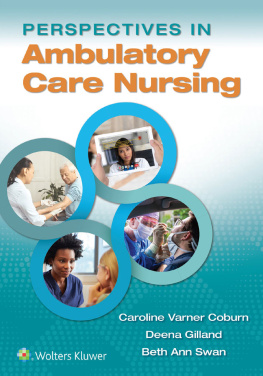
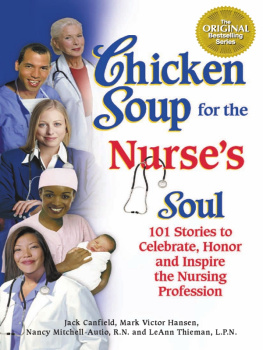

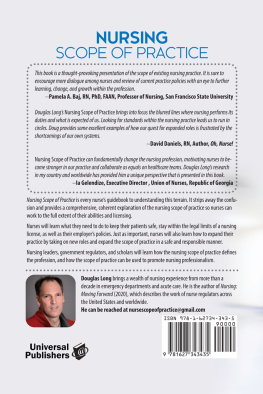
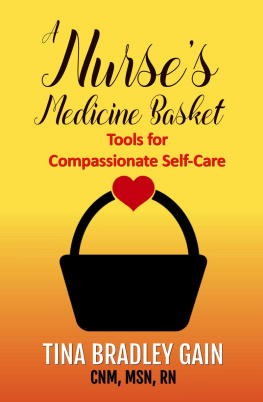
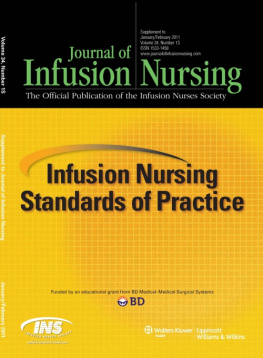
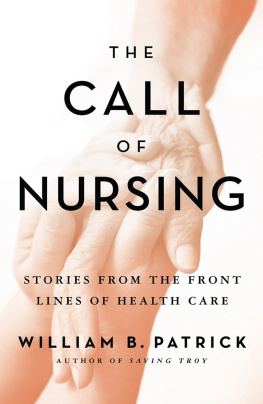


 afreake@roadrunner.nf.net
afreake@roadrunner.nf.net